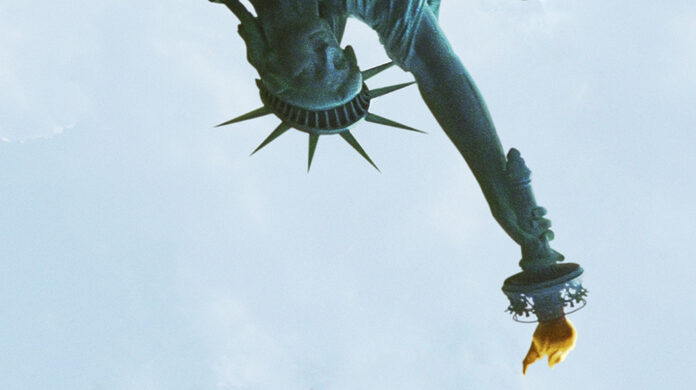The Parable of The Brutalist
Brady Corbet's masterpiece is not subtle, but that doesn't mean it isn't powerful
Jesus spoke in parables. These stories’ messages were easy to understand for anyone who heard them, and the principles embedded in these parables became the cornerstone for Western society. They held a certain power that stood the test of time and inspired change, even though their messages were “simple.”
Brady Corbet’s film The Brutalist is an epic parable, and I suspect it too will stand the test of time. However, as some of its stellar imagery and key narrative moments suggest, this parable is inverted and distorted.
Allow me to explain. The Brutalist, among other lofty goals, attempts to dismantle the idea of the American Dream. It does this early and effectively in one of the most beautiful sequences I’ve ever seen. Jewish-Hungarian architect László Tóth (Adrien Brody) is a Holocaust survivor escaping to America. The audience is first introduced to him deep within the bowels of a ship. He stumbles his way through the dark, bumping into shuffling passengers, until he eventually makes his way to the top. He flings open the doors, and looks up: the Statue of Liberty looms over him. But Corbet and cinematographer Lol Crawley show the structure upside-down (as Daniel Blumberg’s powerfully dynamic score — which I’m listening to as I write — overpowers your eardrums in the best possible way).
It’s a disorienting image meant to visually present the empty promises of the American Dream, how we have inverted what’s truly worthwhile to chase after materialistic “success” and “happiness.” That theme continues to work itself out in the form of Harrison Lee Van Buren (an explosively electric Guy Pearce), a wealthy businessman who hires Tóth to build an elaborate community center on a hill near his mansion. We see Van Buren begin to take advantage of Tóth and his talents in increasingly disturbing ways. The movie uses its expansive runtime to comment on the perverse relationship between capitalism and creativity while also being an empathetic portrayal of the immigrant experience (both incredibly relevant topics in this cultural moment, I’d say).
I haven’t even mentioned some of the other great performances (from Felicity Jones and Joe Alwyn, in particular) or moments that fill every second of this three and-a-half hour film. It’s too grand and emotionally flooring to comment on every image and every idea Corbet puts on screen. I also don’t want to spoil the film, but rather, I want to generally discuss the idea of it being an epic parable.
When we hear the word “parable,” we often think of a moral lesson. The parables I’m most familiar with (the aforementioned parables of Jesus) often give that lesson in a straightforward manner. Take the message of the Good Samaritan: “Be like the man who crossed ethnic and religious lines in the sand to help someone in need.” Jesus tells the story in a way his whole audience would grasp. It’s still good storytelling, with characters and a plot and a clear trajectory, but he doesn’t attempt to hide the message so far beneath those things that it becomes completely lost.
One of the few critiques I’ve seen of The Brutalist says the film begins to buckle under its own ambitions in the second half, and therefore takes the subtext and makes it text. I’ve seen the word “blunt” thrown around the film’s messaging in a negative context. Somewhere along the way, I think movie audiences have incorrectly concluded that hiding a movie’s central theme, causing us to “dig” for our own interpretations, is the only way to make something interesting or thought-provoking. The Brutalist — and many more of the “Great Movies” — reminds us that, sometimes, the idea needs to be direct. We don’t want the message to be so on-the-nose that it comes at the expense of real artistry (which would be propaganda), but we do want the artist to be clear in their ideaology. Corbet crafts a full world, inhabited by complex and realistic characters, to carry out his own ideas. That, to me, is a resounding triumph.
Parables also usually contain a sort of positive resolution. And, while a tacked-on epilogue suggests that Toth’s ultimate destination was worth the harrowing, horrific journey, I wouldn’t say The Brutalist’s is a necessarily happy ending. It’s an ending that, instead, connects its themes more closely to the modern day, where we continue to struggle with the difference between national pride and excusing our nation’s sins (America or elsewhere), and with whether we see our neighbors of different backgrounds as human beings or as tools.
Again, I can think of nothing more relevant to society today. Therefore, these are messages society needs to hear. I suspect that’s why Corbet told this epic story in the form of a parable. Like any great parable, The Brutalist bluntly asks us to explore our own souls, our own views, and our own understanding of the world and its systems.
Rating: 5/5





